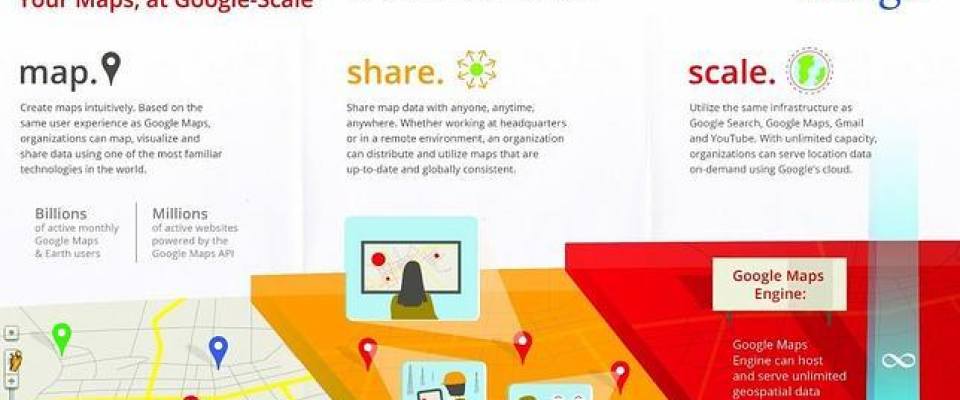Yesterday, Google is adding more functionality to his platform, Google’s Maps Engine, by launching an API for Maps Engine that allows developers to take their custom data, import it into Maps Engine and then use it in their own applications.
The basic idea is to let organizations use Google’s fast mapping cloud infrastructure to layer their data on top of Google Maps and share them with their employees and customers.
As Dylan Lorimer, Google’s product manager for the Maps Engine API, said, the regular Maps API mostly focuses on giving developers access to Google’s own mapping content.
The Maps Engine API is meant to handle developers’ own data. The whole system, by the way, runs on Spanner, Google’s distributed global database.
The API, allows enterprise developers to upload, read and modify their data on the fly.
Thanks to this new API, developers can now create maps and customized applications.
The API currently only supports a somewhat limited slice of Maps Engines’ features, which also include basic spacial queries and manipulating vector data, but the team plans to expand the API quite a bit in the near future.

